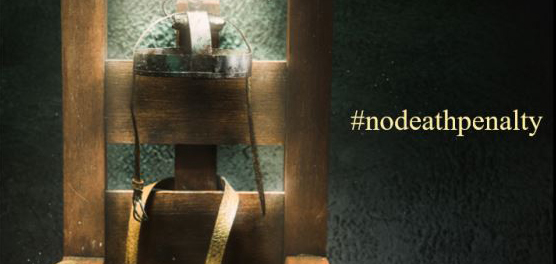IBAHRI marks World Day against the Death Penalty with call for universal abolition
Friday 9 October 2020
To mark the World Day against the Death Penalty on Saturday 10 October, the International Bar Association’s Human Rights Institute (IBAHRI) calls on states to:
-
take steps towards the complete abolition of the death penalty, including by imposing a moratorium on executions;
-
pending abolition:
-
strictly observe the international legal limitations on its application;
-
progressively restrict its imposition and the crimes to which it applies; and
-
ensure the right to a fair trial for defendants in capital punishment cases.

IBAHRI Co-Chair and former Justice of the High Court of Australia (1996 – 2006), the Hon Michael Kirby AC CMG, said, ‘The IBAHRI opposes and condemns the death penalty without exception. We have actively called for its abolition since our 2008 Resolution on the Abolition of the Death Penalty. Capital punishment is a barbaric practice that does not serve justice in any manner. We call on states to abolish the death penalty without delay in line with the growing global trend towards abolition.’
This year’s World Day against the Death Penalty focuses on the right to effective legal representation in capital punishment cases. The IBAHRI highlights the importance of this right through a number of initiatives, including:
Access to effective legal representation is based on the fundamental right of the accused to a fair trial. Article 14(3) of the International Covenant on Civil and Political Rights (ICCPR) states, inter alia, that, ‘In the determination of any criminal charge against him, everyone shall be entitled to the following minimum guarantees, in full equality…(b) To have adequate time and facilities for the preparation of his defence and to communicate with counsel of his own choosing’, as well as ‘(d)…to defend himself in person or through legal assistance of his own choosing; to be informed, if he does not have legal assistance, of this right; and to have legal assistance assigned to him, in any case where the interests of justice so require, and without payment by him in any such case if he does not have sufficient means to pay for it.’
The right to effective legal counsel must be applicable at all stages of the criminal justice process in capital punishment cases, from initial detention to post-conviction pardon or clemency proceedings. International human rights standards include that counsel should be able to meet their clients in private, communicate with them confidentially and advise and represent the accused in accordance with generally recognised professional ethics without restrictions, influence, pressure or undue interference.
IBAHRI Co-Chair, and immediate past Secretary-General of the Swedish Bar Association, Anne Ramberg Dr jur hc, commented: ‘We call on states that have not yet abolished capital punishment to respect, protect and fulfil the right to effective legal representation at all stages of capital cases without distinction of any kind. Also, we encourage more signatories to the Second Optional Protocol to the ICCPR, aimed at the abolition of the death penalty. Our ultimate ambition is for the abolition of the death penalty within all borders, in recognition that it “contributes to enhancement of human dignity and progressive development of human rights.”’
ENDS
Notes to the Editor
-
Click here to download directly a copy of the joint IBAHRI-WCADP statement.
www.ibanet.org/MediaHandler?id=7e1e7b63-dc13-4821-a678-a2856e8f923d
-
Click here for IBAHRI death penalty related material, including the:
-
The International Bar Association (IBA), the global voice of the legal profession, is the foremost organisation for international legal practitioners, bar associations and law societies. Established in 1947, shortly after the creation of the United Nations, it was born out of the conviction that an organisation made up of the world's bar associations could contribute to global stability and peace through the administration of justice.
-
The International Bar Association’s Human Rights Institute (IBAHRI), an autonomous and financially independent entity, works to promote, protect and enforce human rights under a just rule of law, and to preserve the independence of the judiciary and the legal profession worldwide.
For further information please contact:
Romana St. Matthew - Daniel
Press Office
International Bar Association
4th Floor, 10 St Bride Street,
London EC4A 4AD
Mobile: +44 (0)7940 731 915
Direct Line: +44 (0)20 7842 0094
Main Office: +44 (0)20 7842 0090
Fax: +44 (0)20 7842 0091
Email: romana.daniel@int-bar.org
Website: www.ibanet.org
IBA website page link for this news release:
Short link: tinyurl.com/y32uflcl